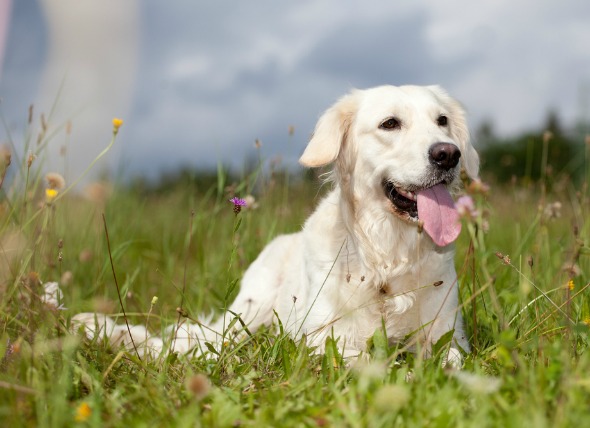
Both dogs and cats suffer from the whipworm (Trichuris trichiura) parasite. It is generally transmitted by ingesting infested matter, although whipworms can be contracted from other infected animals. Whipworm eggs can live in an environment anywhere from a few months to years, and can be present in soil, food, or water, as well as in feces or animal flesh. Additionally, whipworms infect dogs of any age.
If you would like to learn how this disease affects cats, please visit this page in the petMD health library.
A whipworm infection may present itself as a large bowel inflammation or bloody diarrhea, or it may be asymptomatic. Other symptoms commonly associated with a whipworm infection include dehydration, anemia, and weight loss. It is worth noting that symptoms may begin prior to any visual evidence of whipworm eggs.
Dogs contract whipworms by ingesting infested or contaminated matter (e.g., food, water, flesh).
The veterinarian will confirm the diagnosis by conducting the fecal flotation procedure on a stool sample. If parasitic eggs or whipworms are present, they will float to the surface of the glass slide.
Treatment is generally done on an outpatient basis; your veterinarian will prescribe medication to destroy both the worms and larvae living within the dog's body.
A follow-up examination is advised to confirm that all eggs have been exterminated from the animal's system. This is generally accomplished by performing a fecal examination.
Other than properly sanitizing your pet's area, the best way to prevent a whipworm infection is to avoid placing your dog in closed or crowded quarters with other animals.
Image via Shutterstock
 Bleeding Under the Skin of Dogs
Petechia, Ecchymosis, and Bruising in Dogs
Petech
Bleeding Under the Skin of Dogs
Petechia, Ecchymosis, and Bruising in Dogs
Petech
 Excess Phosphorous in the Blood in Dogs
Hyperphosphatemia in Dogs
Hyperphosphatemia is an
Excess Phosphorous in the Blood in Dogs
Hyperphosphatemia in Dogs
Hyperphosphatemia is an
 Inflammatory Bowel Disease (IBD) in Dogs
The group of gastrointestinal diseases known as i
Inflammatory Bowel Disease (IBD) in Dogs
The group of gastrointestinal diseases known as i
 Tylenol (Acetaminophen) Poisoning in Dogs
Acetaminophen Toxicity in Dogs
Acetaminophen is o
Tylenol (Acetaminophen) Poisoning in Dogs
Acetaminophen Toxicity in Dogs
Acetaminophen is o
 Teeth Misalignment in Dogs
Malocclusion of Teeth in Dogs
Normally, a p
Teeth Misalignment in Dogs
Malocclusion of Teeth in Dogs
Normally, a p
Copyright © 2005-2016 Pet Information All Rights Reserved
Contact us: www162date@outlook.com